foreword
In today's information age, the value of data is becoming more and more important. Data processing is a core function of great concern to any software system. Whether it is an e-commerce website, a mobile application or an enterprise management system, these systems need to process and manage huge amounts of data. For example, when a user searches for a specific product on an e-commerce website, the website needs to filter the data according to the user's query conditions, and sort and display according to certain rules.
The business scenario assumes the following
Data processing plays a vital role in the manufacturing aspects of manufacturing. The author has been deeply involved in the digital transformation of the manufacturing industry for many years, and often faces scenarios where some companies need to collect a large amount of data, including supply chain information, component specifications, production progress, etc., especially quality inspection! Quality management and predictive maintenance require analysis of test data, equipment sensor data, etc. to detect abnormalities in the production process in a timely manner, predict equipment maintenance needs, and avoid failures and downtime losses. By monitoring data in real time and processing it reasonably, enterprises can maximize capacity utilization, reduce maintenance costs, and at the same time guarantee product quality and delivery time.
You see, data processing plays an important role. In order to optimize production efficiency and quality, and reduce costs and risks, manufacturing enterprises actively embrace the complete functions of data processing and the agility of implementation, which is the key element to promote innovation and competitiveness in the manufacturing industry.
So how to use Mendix's OQL function to maximize various cattle operations that reflect data operations?
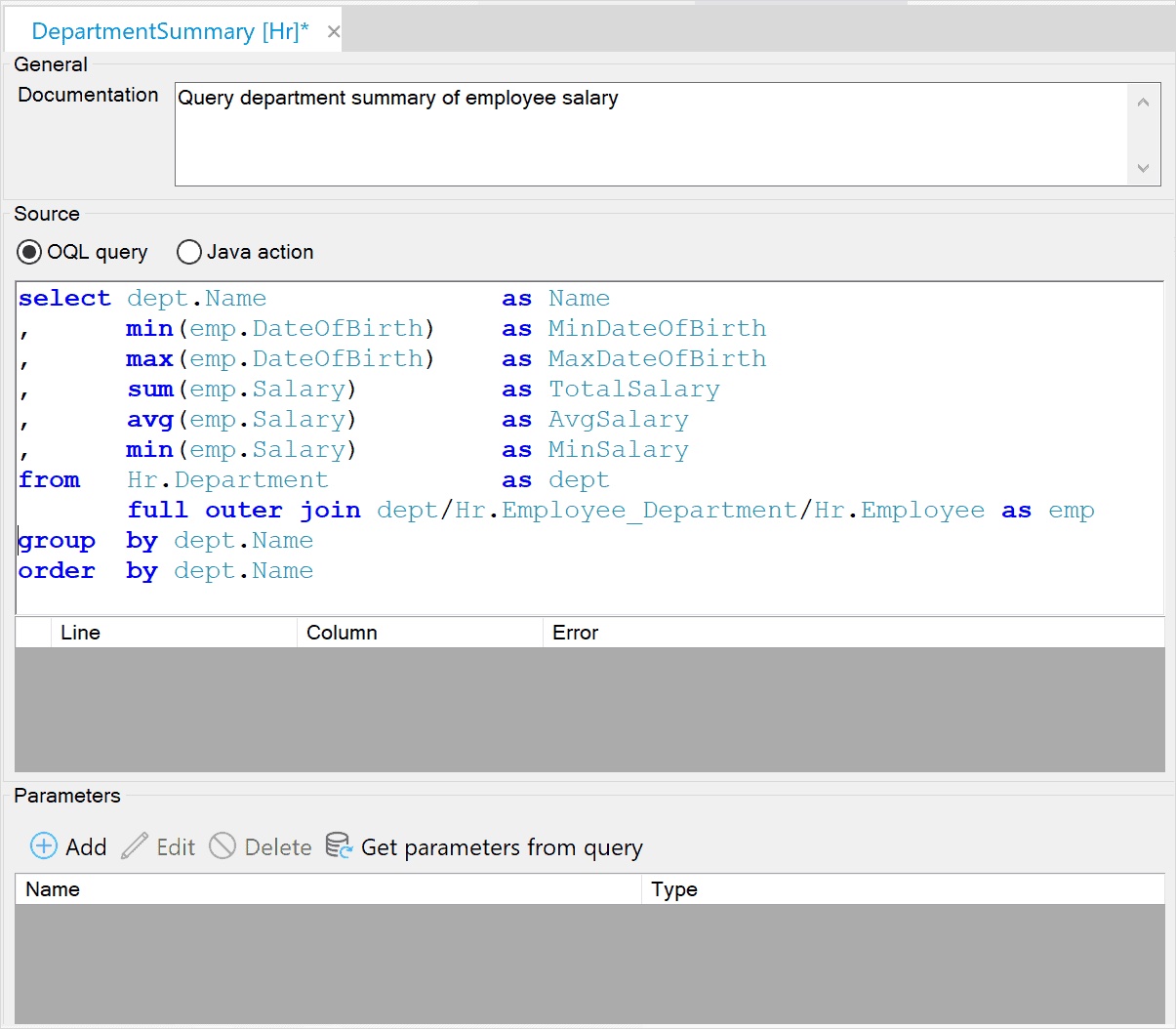
As shown, Mendix Object Query Language (OQL) is a relational query language, just like SQL. The main advantage of OQL is that it uses entity and association names instead of actual database table names.
Furthermore, OQL makes it easy to connect objects using predefined relationships (associations) without calculating which columns should be coupled. Despite these differences, many SQL keywords can also be used in OQL:
Functions of Aggregation - Aggregation performs specific calculations on retrieved column values:
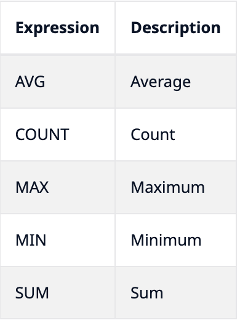
For more information on OQL functions, see the following list:
- OQL CAST
- OQL COALESCE
- OQL DATEDIFF
- OQL DATEPART
- OQL LENGTH
- OQL LOWER
- OQL RANGE BEGIN
- OQL RANGEEND
- OQL REPLACE
- OQL ROUND
- OQL UP
The following operators can be used in OQL expressions:
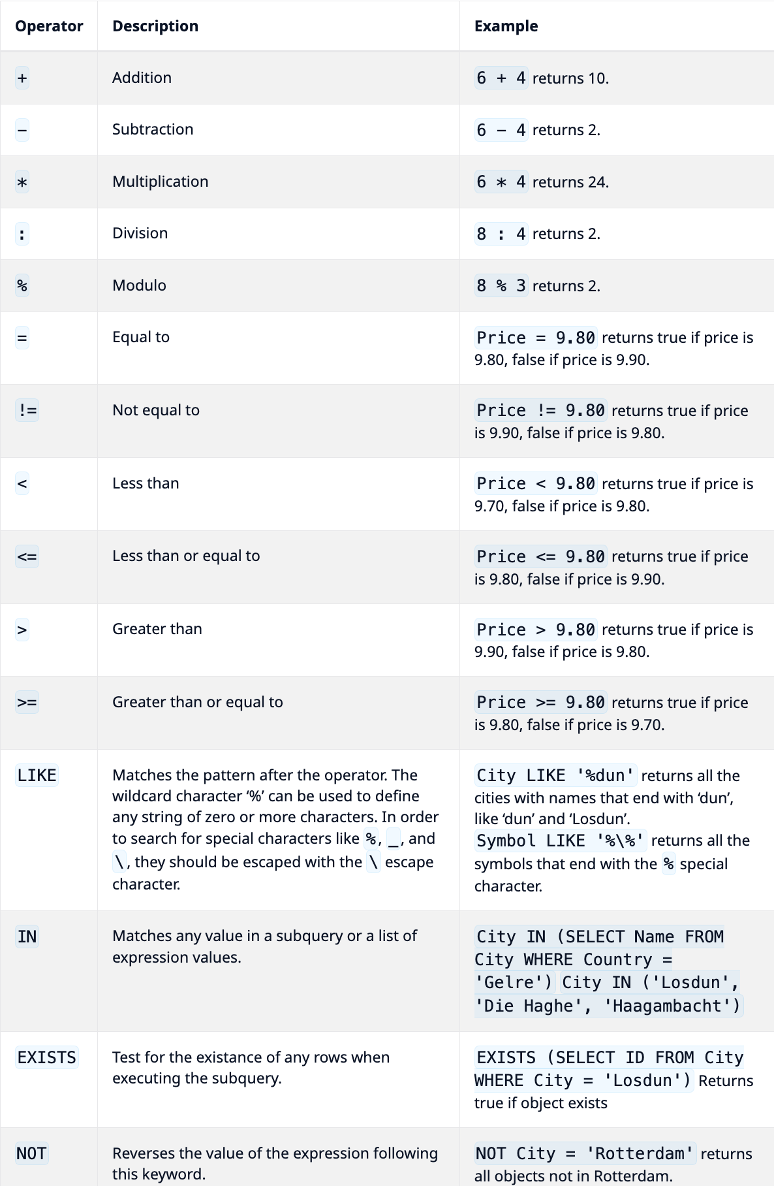
There are more operators, as follows:
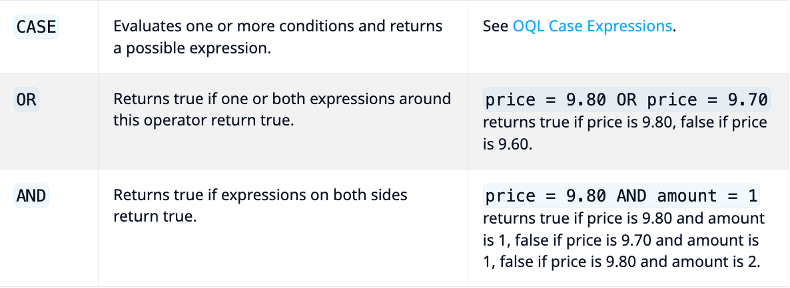
Let's take a look at the dignity of the OQL design state:
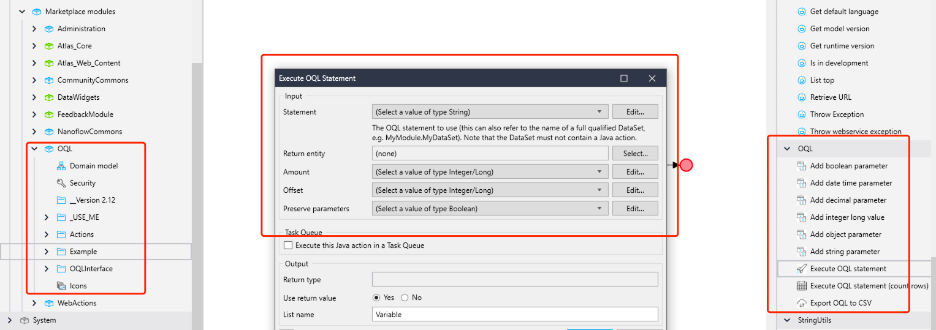
After downloading from the marketplace, you can directly drag and drop the activity in the "toolbox" into the microflow, and click to enter the configuration interface, which is the red frame in the middle. How complicated can the statement statement be? Let's make a simple example as follows.
The syntax of the from clause is listed below:
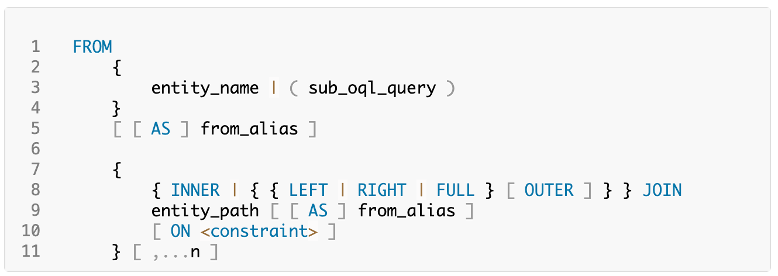
Next is the syntax of the where clause:

Not only that, the capabilities of group by, having, order by... and other clauses are also available.
In a nutshell, OQL is your equivalent of the perfect SQL syntax in the Mendix world .
In addition, Mendix's original OQL module also gives you a benefit: OQL Work Bench, a SQL query management client similar to MySQL:
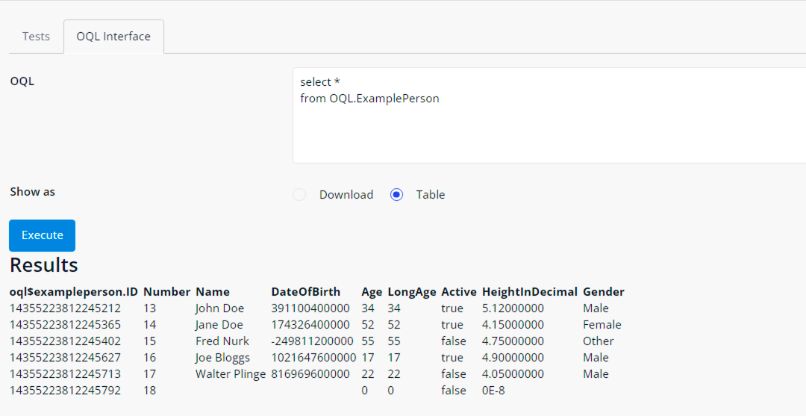
Don’t be afraid of writing wrong OQL statements anymore, you can test and run it here in the future!
Download the OQL module now: https://marketplace.mendix.com/link/component/66876
About Mendix
Mendix Corporation, a Siemens business, is rapidly becoming an enabler of digital transformation for enterprises. Its industry-leading low-code platform and comprehensive ecosystem integrate the most advanced technologies to help enterprises create solutions that improve interactivity, simplify operations and overcome IT bottlenecks. Mendix is a leader and visionary in the eyes of authoritative industry analysts, as well as a cloud-native, open, scalable, agile and proven platform. From artificial intelligence and augmented reality, to intelligent automation and native mobility, Mendix has become the backbone of digital-first businesses. Mendix's enterprise low-code platform has been adopted by more than 4,000 leading companies around the world.